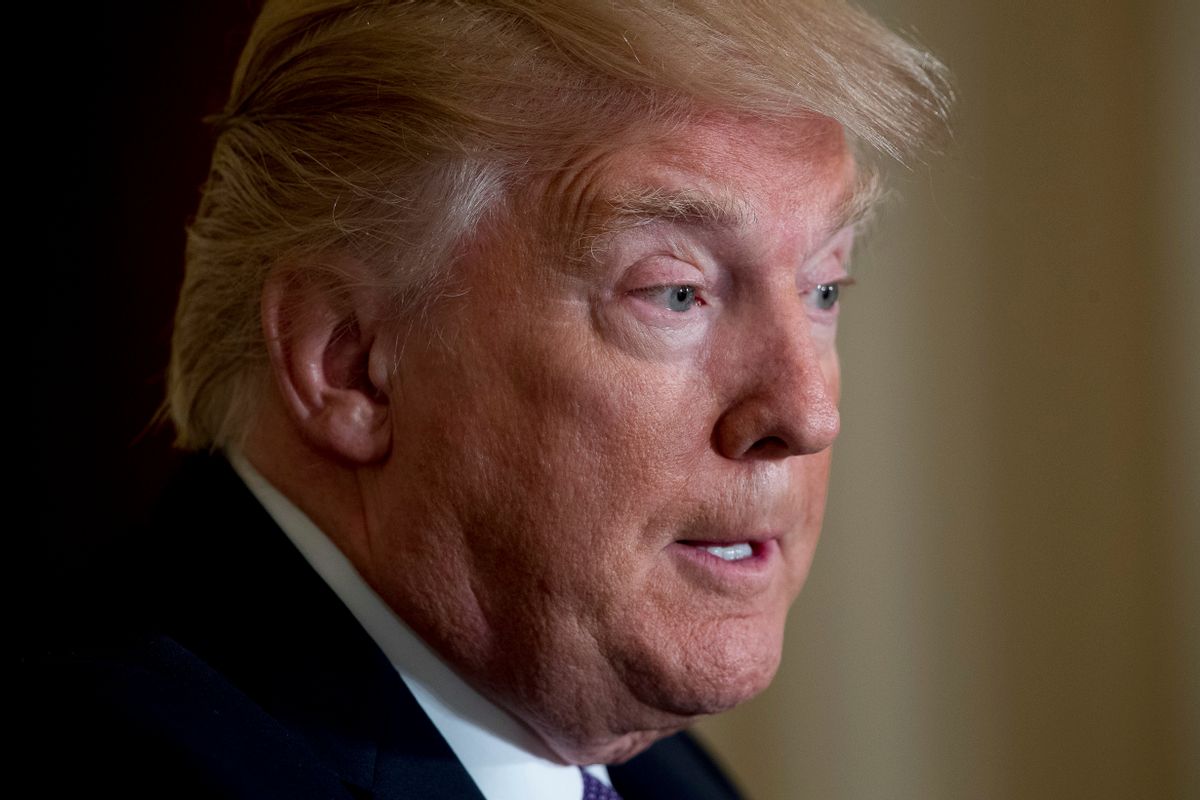Susan Rice, the former national security adviser under Barack Obama, has become the focus of an enthusiastic scandal-manufacturing effort by the Trump White House, its hapless allies in Congress and the conservative media. To hear them tell it, Rice apparently masterminded the illegal “unmasking” of Trump aides whose conversations were captured by U.S. intelligence agencies conducting surveillance of foreign officials. White House officials have been going on conservative TV and radio programs to hype these allegations as the biggest scandal in American political history. President Donald Trump himself went so far as to say that he thinks Rice broke the law.
Well, it now looks like Susan Rice did not commit a crime after all. CNN reported last week that Republican and Democratic investigators looking into the unmasking allegations have found no “unusual or illegal” behavior by Obama administration officials. CNN’s findings were corroborated by NBC, which cited bipartisan (and anonymous) congressional sources in reporting that there was “no inappropriate action by Susan Rice or any other Obama administration official.” The Trump White House, meanwhile, has not provided any evidence to support the president’s suggestion that laws were broken.
And so, once again, we are drawn back to the issue of credibility. As I wrote last month, Trump and his aides have done everything in their power over the course of this very young administration to sacrifice every presumption of honesty and good faith. In March Trump was flailing about trying to prove his false claim that Barack Obama had “wiretapped” Trump Tower. The Rice allegations emerged as a means for the president to allege that his wiretapping claims had been vindicated (they weren’t) and that the real scandal involved his predecessor. The word of the president is worthless and, as I wrote last month, that lack of credibility will prove debilitating in the event of a crisis.
This brings us to North Korea. Kim Jong Un's regime has spent the Trump presidency test-firing missiles and threatening to conduct additional nuclear tests. Trump has been pressuring China to take a more active role in containing North Korea’s nuclear ambitions, and at the same time his administration has been making vague threats about taking unilateral military action. Vice President Mike Pence was in South Korea over the weekend, and he warned the North Koreans of Trump’s “strength and resolve,” as demonstrated by the bombings in Syria and Afghanistan Trump ordered. The situation seems to be drifting steadily toward a crisis point.
That’s scary enough, given the potential for disaster that would attend pretty much every plausible course of action toward North Korea. The situation is made still more volatile by the fact that there doesn’t seem to be any coherent thinking behind when and where the administration uses force, and Trump himself has no reserve of credibility to draw upon to make a case that military action is necessary.
What reason is there to believe that Donald Trump is approaching the North Korean nuclear problem with any degree of caution or insight? Why would U.S. allies place any faith in Trump's Korea pronouncements, given his wild inconsistencies on international affairs and capricious reversals of his stated foreign policies? If Trump were to make the case tomorrow that military action is the only way to halt North Korean nuclear proliferation, why would anyone believe him?
These same questions will apply to every other foreign policy crisis that is plopped before Donald Trump for the duration of his presidency. The flagrant dishonesty and obvious bad faith the administration shows at every opportunity are driven by the president, who lies to protect and advance his own interests.
The worst possible outcome would be for Trump to view the use of military force as his means for maintaining credibility. His attacks in Syria and Afghanistan have been met with sober approbation from influential media figures who wrongly conflate acts of warfare with presidential gravitas. Trump seems to have figured out that he can compensate for months of credibility-destroying lies — at least in some people's eyes — by dropping a few bombs.



Shares